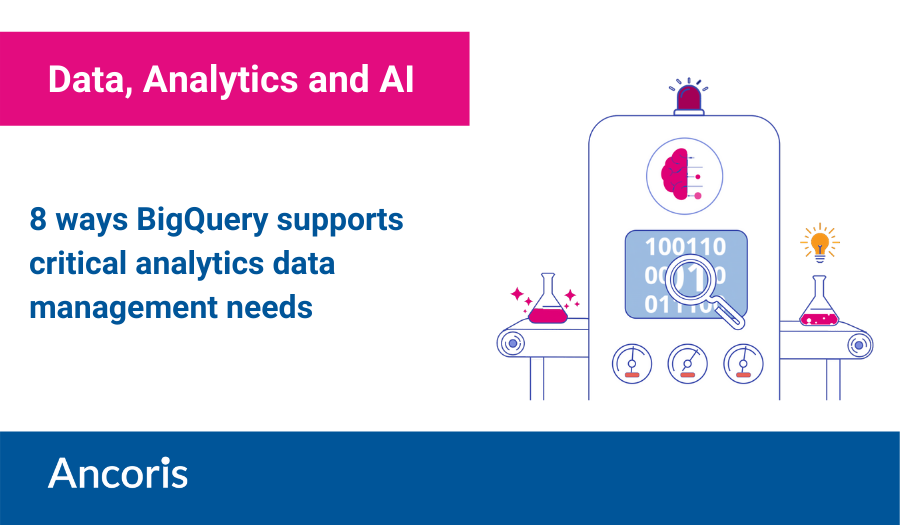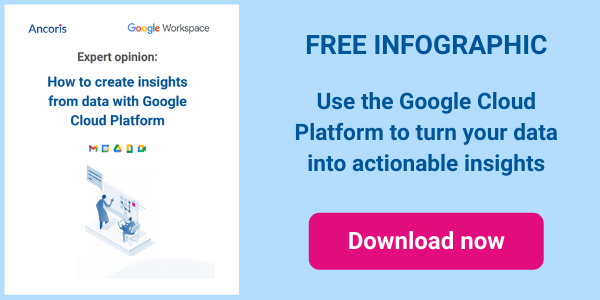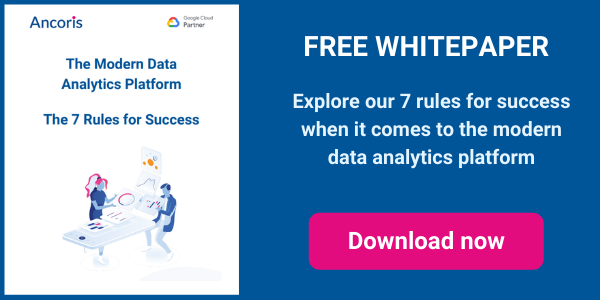Data-driven businesses are more successful than average, but your choice of data analytics tools can make a big difference to your bottom line. When Gartner looked at the key capabilities to consider when selecting a data warehouse solution, it gave BigQuery, Google’s serverless data warehouse platform, high scores across the board.
High scores from Gartner
In Gartner’s evaluation, BigQuery scored well when it came to providing:
1. support for advanced analytics, with tools that allow users to make predictions, generate recommendations and uncover deeper insights through techniques such as visualisation, sentiment analysis and machine learning
2. support for users who want to explore their data to discover new insights and trends, with tools optimised for both business users and data scientists
3. the ability to ingest both batch and continuous data easily, with tools for combining, cleaning, transforming and enriching massive amounts of data coming from different sources
4. access to a wide range of data types and data stores, including object, transactional and spreadsheet storage, with processing and storage separated so you can choose the best storage options for your data
5. the ability to scale quickly and easily and handle variable workloads, so you can focus on data and analysis rather than worrying about upgrading, securing or managing the infrastructure
6. easy administration and management, both during initial implementation and ongoing use, with features such as automatic replication, backup and restore and tools for implementing and enforcing your security and governance policies
7. the ability to manage large volumes of data, with BigQuery already used by numerous organisations that are storing and processing more than 100 terabytes of data
8. optimised performance for both routine and exploratory queries, so you can use the same repository for all your data analytics needs
Suitable for all major use cases
What all this means, according to Gartner, is that BigQuery can handle all four of the major use cases for data analytics:
- traditional data warehouses, which use large volumes of structured historical data to power standard reports and dashboards
- real-time data warehouses, which use continuously loaded data and fast processing to power real-time operational decisions
- logical data warehouses, which act as a logical tier to a variety of structured and unstructured data sources, powering queries with data held outside the data warehouse itself
- context-independent data warehouses, which allow free-form exploration and data mining to uncover new relationships and make predictions and forecasts
One repository for all your needs
With such a broad scope, BigQuery also fits well with Gartner's recommendation that companies should take a “good enough” approach to their data analytics infrastructure: using the same repository for many use cases, rather than a different platform for each project. As well as minimising the overheads of managing different data repositories, this strategy means you’ll be able to draw on existing expertise to reduce development time for new use cases.
Working with our data analytics and AI team
Our Data, Analytics and AI practice brings together a highly committed team of experienced data scientists, mathematicians and engineers. We pride ourselves in collaborating with and empowering client teams to deliver leading-edge data analytics and machine learning solutions on the Google Cloud Platform.
We operate at the edge of modern data warehousing, machine learning and AI, regularly participating in Google Cloud alpha programs to trial new products and features and to future-proof our client solutions.
We have support from an in-house, award winning application development practice to deliver embedded analytics incorporating beautifully designed UIs. We are leaders in geospatial data and one of the first companies globally to achieve the Google Cloud Location-based Services specialisation.
If you'd like to find out more about how we can help you build your own modern data and analytics platform, why not take a look at some of our customer stories or browse our resources. Needless to say, please get in touch with our team if you'd like more practical support and guidance.
Article updated April 2021
First published September 2019


